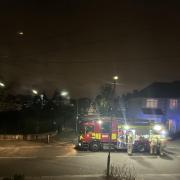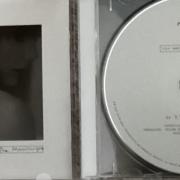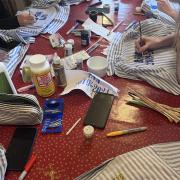
We live in a generation where opportunities are endless, a city that breeds young leaders. Yet there are many young people across the UK who don’t know what occupation they want to take on in the coming years. I am a student subject to this indecision. However, thanks to Katherine, I now have an idea of what occupation I might go into: jurnalism.
On the 5th of November, I met with the BBC News Reporter Katherine Carpenter. She happily shared with me her day to day life as a reporter, the pressure of her role and the highs and lows of her job .
One of the things I found extraordinary was the pace that occurs in the work field of journalism: stories coming in every minute, covering different topics and areas .Whilst I was in the studio, the sports director had to switch the sports story twice, from the Bulgarian supporters who were believed to appear at the Chelsea match to recording the story on Saracens Rugby Club, who were found to be overspending on their players. The pace was so fast and unpredictable, which accurately reflects the turbulence that exists in the world of journalism. This aspect of journalism stands out to me the most and emphasises why most journalists like Katherine love their job so much !
Katherine encouraged me by pointing out the importance of having some idea about your career at this age, as it will put you a step ahead of other students. In today’s world, entering University/ the Work Field with GCSE’s, A-Levels or BTEC qualifications is simply just not good enough.She emphasised the competitiveness of the working world, thus meaning that we as the youth of the future need to deliver something more than just academic knowledge. Alongside this, journalism is a popular field. Therefore, it is key that you stand out amongst an employer or university panel. The ability to pick a field you enjoy, and one which you could work overtime in a field you love to wake up in, day after day, and a field that you believe serves purpose in our world, is vital in becoming successful.It is reported that in the UK, only 17% of the working population have found jobs that they love . Our generation needs to increase this statistic. Thus It is important to consider the mechanics that complement your occupation before you decide your field of interest.
A key mechanic we discussed was Katherine’s work- life balance: working 4 days a week with 3 children sounds fair to me. However, those four days Katherine regarded as hectic and “exhausting”. Nevertheless they bring about pure enjoyment, reflecting the world of media. No matter what field you decide to go into, you’ve got to be able to endure every bit of pain, exhilaration and happiness that comes alongside the job. Journalism is a world full of changing dynamics, meaning that being adaptable in pressured conditions is necessary.
Moreover, the topic of the gender pay gap within the BBC was addressed. Many women are now very open about this and are fighting to be paid the same as their male equals. Katherine made a point that “if someone had asked her about this issue 20 years ago, her answer “wouldn’t have been as expressive”. However, due to it’s amplification in the media from Samira Ahmed and many others, women in underpaying occupations (compared to their counterparts), are being as vocal as ever, speaking out against the inequality, within 21st century workplaces. Although pay is an important element of work, Katherine emphasised that working isn’t all about the money. It’s also about job satisfaction and enjoying your job .In a recent study, the public overwhelmingly expressed passion over pay, with two thirds (64%) saying they’d rather have a poorly paid job they loved, compared to just 18% who’d prefer a well-paid job they hated. However, this does not mean that you should tolerate being underpaid for your hard work. The lesson I took from that conversation was, to ensure you’re treated equally and respected as deserved in your workplace .
The key thing I took from this interview was that I should only pursue a career I am exhilarated by. This is a condition we should all be aware of. As humans we all face social pressures, day in, day out Others look at the occupation that pays the most, but never end up enjoying it. 20years of waking up to go to a painful job that simply pays the bills, is not good enough for our British thriving society. We all need to think less about what our future careers would mean to others and prioritise how they would satisfy ourselves. I cannot stress the importance of selecting a career that you will enjoy, a career that gives you satisfaction and a career that you’re passionate about, Katherine gave me a life lesson from a field I aspire to go into. Her words were “go and explore your aspirations, find out what they entail and start working on yourself now !“. The world is in need of young, educated people to make a difference. Use your education wisely and be that person who makes a difference to this ever- changing society.


























